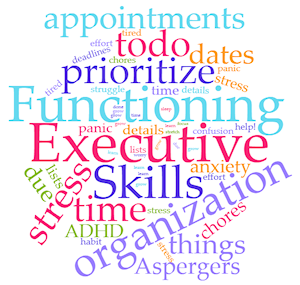All Posts in Category:Skills Worth Working On
WHYY’s Radio Times: How to Have Civil Conversations in a Polarized World share
 I just finished listening to a (pre-Thanksgiving) podcast about having civilized political conversations with other people. Most of the episode is spent interviewing author, Jason Jay, who touches on a lot of things that I have found to be helpful, some of which have taken me 50 years to figure out! I actually recommend starting to listen mid-show at the 29:28 point for about 3 minutes and then jump back to the beginning with that perspective in mind. The whole episode is valuable but I think it helps to start with their discussion about what Jay recommends as the goal when having a challenging conversation from differing viewpoints (Hint: It’s not to emerge victorious) and then talk about everything else.
I just finished listening to a (pre-Thanksgiving) podcast about having civilized political conversations with other people. Most of the episode is spent interviewing author, Jason Jay, who touches on a lot of things that I have found to be helpful, some of which have taken me 50 years to figure out! I actually recommend starting to listen mid-show at the 29:28 point for about 3 minutes and then jump back to the beginning with that perspective in mind. The whole episode is valuable but I think it helps to start with their discussion about what Jay recommends as the goal when having a challenging conversation from differing viewpoints (Hint: It’s not to emerge victorious) and then talk about everything else.
It’s also interesting to me that the interviewer, Mary Cummings-Jordan, appears to struggle herself at some times in the podcast with stepping outside of the notion that conversations like these are battles to be won. And then, when journalist Rachel Swarns joins the conversation, the topic shifts to Swarns and Jay giving some tips about being true to yourself when someone says something offensive while not causing World War III.
The main points I hope people take away from this in a way that is meaningful and understandable are:
- The goal is not to change a person’s mind, but rather to: learn how to better understand the other person and how they came to the opinions that they currently have; share a different viewpoint from your perspective; and, if you’re on a roll, try to find areas of common ground where both people’s needs can be met…at least to a degree.
- Ask questions rather than trying to make sure to hit all of the “standard” talking points on the issue being discussed.
- Don’t attack. “When I hear _________ , I think…” “I feel…” “I want…”
- Respond to offensive statements by illustrating in a meaningful, calm, human/personal way why that statement is hurtful to you or someone that you know or care about.
And just to be clear…this is HARD!! It is a skill that takes practice, a lot of patience, and that requires that you can tolerate feeling vulnerable and anxious, especially as you are trying to grow these skills. When you are so used to talking about contentious, political issues in an argumentative way, it’s incredibly hard to not take the bait that others might dangle in front of you. Take a break if things get too heated, remembering that people stop actively listening when they become defensive, and find a way to lighten the mood. And the next time you decide to dive into a conversation, it will probably feel a little bit easier.
How to have civil conversations in a polarized world : Radio Times : Politics & Policy : WHYY
The latest news and information from the world’s most respected news source. BBC World Service delivers up-to-the-minute news, expert analysis, commentary, features and interviews. Air Date: November 20, 2018 12:00 am Listen 49:00 Guests: Jason Jay, Rachel Swarns As Americans sit down to feast with family and friends this week and share food around the table, many people plan to avoid any talk of politics or social issues.
Yoga share
 Yoga is good for the body AND the mind. In addition to the obvious health benefits of regular exercise, a good yoga instructor creates an environment that promotes:
Yoga is good for the body AND the mind. In addition to the obvious health benefits of regular exercise, a good yoga instructor creates an environment that promotes:
- A sense of serenity and acceptance for who you are in the moment.
- Guidance for how you can recognize when your “monkey mind” is swinging from thought to thought with the worries of the day and gently turn your attention back to the present moment and the feeling of your nourishing breath
- Feeling comfortable in your own skin.
- Increasing confidence as your strength and flexibility grows.
There is a TON of research that strongly supports using yoga to assist with the treatment of: anxiety (including Post Traumatic Stress Disorder); depression; ADHD; sleep problems; substance abuse, anger issues, and schizophrenia (when done in conjunction with medication). It’s an activity that can be modified for people of any age, from 2 to 102, and you can take with you anywhere you go! There are even some instructors that have training in both mental health therapy and yoga and can customize the work to really target anxiety and trauma specifically, teaching you how to be comfortable in your own body again.
Personally, my ability to use relaxation breathing as a skill in my daily life has never left me, even though I haven’t done a class for almost 10 years. One day, when my life gets a bit simpler, I fully intend to return to the benefits of a more regular, devoted yoga practice. In the meantime, I remind myself the words of wisdom of one of my former instructors, “Even one sun salutation is a yoga practice.”
Teaching a Growth Mindset by Carol Dweck, PhD (video) share
 The TED Talk at the bottom of this post is another video of Dr. Dweck, this time addressing some of the do’s and don’ts for how to parent or teach (or, I would argue, live your life) in a way that fosters the growth mindset. Here are the points that stand out to me:
The TED Talk at the bottom of this post is another video of Dr. Dweck, this time addressing some of the do’s and don’ts for how to parent or teach (or, I would argue, live your life) in a way that fosters the growth mindset. Here are the points that stand out to me:
- Don’t simply praise a child for the effort they put forth.
- Don’t react to mistakes and failures with anxiety, concern, and consequences.
- Praise for effort needs to be given within the context of feedback about the quality of the results of their efforts. Parents and teachers can help kids by encouraging effort but they ALSO:
- talk about areas where the child can improve or do differently the next time.
- provide opportunities to deepen their understanding of the material and revise their work to try again.
For more information regarding this way of thinking, be sure to check out the other items in Skills Worth Working On, by clicking on the “Growth Mindset” tab.
Chain Emails: How to be a Smart and Responsible Internet User share
 Chain emails are the internet’s electric form of gossip. At best, they are good for a quick laugh. At worst, they can spread rumors, infect your computer and even spread viruses to your friends. This article offers some guidelines that can be helpful to follow.
Chain emails are the internet’s electric form of gossip. At best, they are good for a quick laugh. At worst, they can spread rumors, infect your computer and even spread viruses to your friends. This article offers some guidelines that can be helpful to follow.
I’m not a tech expert, so I’m sure that there are other things worth mentioning but, at the very least, it’s a start. Personally, I don’t even read most of these types of emails anymore because I often find that they are steeped in biased, negative thinking and affect my mood. The positive power of the internet (e.g., being a tool for learning, giving voice to the individual, getting information about, and to, people in need) is also it’s greatest downside because there are people who, some purposefully and other’s inadvertently, spread misinformation, lies, and risk of computer viruses. There will always be negativity in the world, that is something that I can’t control. What I have learned to control for me is the amount of time I spend wallowing in it and passing it on to others. So, with that in mind, I offer the following:
- Don’t believe anything you read in an e-mail that’s being passed around. E-mails are quickly distanced from their original author so it’s easy to lie, trick, and mislead with them and the author will never face the consequences of being “caught.”
- Verify the information sent to you for yourself before you consider passing it on to your own friends and family. Failing to do this basically means that you are very likely to be the next link in a chain of gossip, rumor, or blatant lies. Information can generally be verified by searching on the following sites (depending on what you’re trying to verify):
- www.snopes.com – The “Myth Busters” of the internet.
- www.wikipedia.org – When used with a little caution, can often lead you in the right direction. Make sure that there are validated citations for the sentences you are reading.
- www.news.google.com – Look for reputable news sources that you recognize.
- Also bear in mind that a lot of these heavily passed on e-mails contain some truth and some fiction. The truth is generally added to give the appearance that all of the information is legitimate. Don’t be tricked!
- It is always better to pass information you think is important to others by simply providing the link to where they can view the unchanged, original information. When people pass around information in text, anyone can add or take out stuff at their whim, making the information at best incomplete and at worst completely incorrect.
- Don’t blindly click on any link you see in an e-mail. It is very easy to have the text of the link be different from where the link actually takes you. Put your mouse over the hyperlink in the text and the actual link will show up above the mouse pointer. Only click on it if you are going to a reputable website that you are familiar with. Going to unfamiliar website by disreputable people/companies can result in your computer getting infected.
- You can protect your friends’ privacy when you pass on e-mails like this to your friends by sending it to yourself (optional, can be left blank) and then putting all of your friends’ e-mail addresses in the “BCC:” section. This way, everyone’s e-mail addresses are invisible to the other people you are sending the e-mail out to.
TED Talk: The Power of Believing that You Can Improve by Carol Dweck, PhD (video) share
Think about the difference, emotionally, between these two statements:
- I can’t ride a bicycle.
- I can’t ride a bicycle, yet.
For me and, studies show, for a lot of other people, the first sentence communicates a limitation. The second sentence is full of possibility. That’s not to say that everyone who says that they can’t ride a bicycle believes that they will never develop that ability. It just means that the second sentence clearly leaves the door wide open for growth to occur.
Psychologist, Carol Dweck, is a professor and researcher at Stanford University. She has spent a considerable amount of her professional life focused on trying to deepen our understanding of motivation. What makes people do what they do? In the TED talk below, she speaks about the results numerous studies, all lending significant support to the idea that, when students know that intelligence/skill is something that can be nurtured and improved upon, they are more likely to:
- be curious and want to learn new things (throughout your entire life)
- put a lot of effort into trying to learn more and more
- confront uncertainties rather than avoid them, allowing yourself to take chances and make mistakes for the sake of eventually getting better
- take constructive feedback as an opportunity to improve rather than as a personal criticism
- be inspired by others who are better than you rather than intimidated by them.
In one of her studies, a large number of students were divided into two groups. One group was told, simply, that they were smart kids. The other group was taught scientific facts about the brain and learning. It was explained to them that, “when they step out of their comfort zone to do hard things and they stuck to them, the neurons in their brains can form connections, stronger connections, and over time, they [the kids] could get smarter.” The current term in the literature for this is “neuroplasticity.” The study found that students who learned that trying things helps them become smarter showed greater motivation in school, better grades, and higher test scores.
For more information regarding this way of thinking, be sure to check out the other items in Skills Worth Working On, by clicking on the “Growth Mindset” tab.
The Effect of "Power Posing" Likely Depends on Context and Our Thoughts share
 I had mentioned Amy Cuddy’s work about power posing to a similarly scientifically-minded person recently and, after doing some reading on their own, they brought to my attention a blog article posted on the Scientific American website, The Dark Side of Power Posing: Cape or Kyrptonite, by Jay Van Bavel (11/212013). It took a look at Amy Cuddy’s work about ‘power posing’ and then pulled in some other relevant research findings. Basically, research suggests that there are traits within us and within our environment that affect whether power posing is helpful or makes things worse. One study found that, if you are a person who struggles with a lot of negative self-talk, power posing can actually have the opposite effect and decrease self-confidence. Other studies suggest that power posing can also be used to increase the likelihood of us doing things that amount to an abuse of power, such as: steal; cheat; or break traffic rules.
I had mentioned Amy Cuddy’s work about power posing to a similarly scientifically-minded person recently and, after doing some reading on their own, they brought to my attention a blog article posted on the Scientific American website, The Dark Side of Power Posing: Cape or Kyrptonite, by Jay Van Bavel (11/212013). It took a look at Amy Cuddy’s work about ‘power posing’ and then pulled in some other relevant research findings. Basically, research suggests that there are traits within us and within our environment that affect whether power posing is helpful or makes things worse. One study found that, if you are a person who struggles with a lot of negative self-talk, power posing can actually have the opposite effect and decrease self-confidence. Other studies suggest that power posing can also be used to increase the likelihood of us doing things that amount to an abuse of power, such as: steal; cheat; or break traffic rules.
I found Van Bavel’s article very interesting because, after I learned about Cuddy’s work, I had been curious about how it connects to the scientific research about the power of positive mental imagery. Research in the area of sports psychology has found a significant connection between athletes mentally rehearsing their craft and improvement in their ability to perform the tasks their sport requires. And trauma research has revealed that healing can take place when we re-imagine a traumatic event and role-play ourselves as powerful and able keep ourselves safe. So, after learning about how power posing affected body chemistry, I had wondered if simply imagining a power pose could shift body chemistry as well.
Because Van Bevel’s ‘Dark Side’ article is generally talking about the importance of our thoughts when we strike a pose, that what we are thinking affects whether we can use poser posing for ‘good’ or for ‘evil,’ it leads me to suspect that our body chemistry does change when we imagine ourselves doing a power pose. Hopefully, a researcher will take a look at that in the near future. More importantly, though, the notion that our thoughts can influence whether a power pose is a good thing, suggests to me that pairing the power pose with positive self-talk is critical so that we can increase the likelihood of using our power for the good of ourselves and for society in general. The next time you are doing your Wonder Woman pose before your next job interview, I would suggest that you are also imagining yourself speaking to the interviewer in a confident and personable way.
Executive Functioning Skills share
What are these skills you speak of?
 “Executive functioning skills” is a term that is used to describe our brain’s ability to plan, organize, and complete tasks. Brain functions such as short-term memory, mental flexibility, and self-control are all involved in these types of tasks. In your day to day life, this means that you are capable of developing strong executive functioning skills if your brain does well with remembering, being able to shift gears or “think outside of the box,” and being self-aware enough to enable you to control impulses and adjust your actions when change is helpful. If you are lucky enough to have strong executive functioning skills you will more easily develop the ability to:
“Executive functioning skills” is a term that is used to describe our brain’s ability to plan, organize, and complete tasks. Brain functions such as short-term memory, mental flexibility, and self-control are all involved in these types of tasks. In your day to day life, this means that you are capable of developing strong executive functioning skills if your brain does well with remembering, being able to shift gears or “think outside of the box,” and being self-aware enough to enable you to control impulses and adjust your actions when change is helpful. If you are lucky enough to have strong executive functioning skills you will more easily develop the ability to:
- Find things when you need them rather than spending half of your planned task activity just trying to locate the items that you need.
- Keep track of tasks that need to get taken care of or appointments/dates to keep instead of constantly needing to apologize for forgetting to do things or show up when you promised to.
- Prioritize things that are the most important over accomplishing other perhaps the easier ones…or the ones that are less tedious…or the ones that just happen to be in front of your face (I call these rabbit holes…a major weakness of mine, I go down rabbit holes all the time. My professional husband also uses the term, “project creep” when he is encouraging me to avoid it and stay on task. ).
- Chunk/plan out long term projects so that you can gather the necessary materials and then work on them gradually rather than leaving it all to the last minute.
- Estimate how long a task will take, fairly accurately, so that as you plan things in your schedule or on your “To Do” list, you have reasonable expectations of yourself rather than expecting yourself to have 8 hands and 2 brains and then feel like a failure when you don’t accomplish everything on your list.
Assert Yourself! share
 Feeling like you have the ability to speak up and effectively express your thoughts and opinions in a respectful way, even if things don’t always go your way, is an important part of relieving anger, anxiety, and depression. The ability to be assertive is a skill that can be learned and developed, so if this is hard for you now, it doesn’t mean it will be forever. (Remember…Growth Mindset!)
Feeling like you have the ability to speak up and effectively express your thoughts and opinions in a respectful way, even if things don’t always go your way, is an important part of relieving anger, anxiety, and depression. The ability to be assertive is a skill that can be learned and developed, so if this is hard for you now, it doesn’t mean it will be forever. (Remember…Growth Mindset!)
The Centre for Clinical Interventions is an Australian-based agency/website that appears to be connected to their government services. It has resources to help people to learn/improve many different mental health related skills. One such resource is their Assert Yourself! workbook. It is a series of modules that teach you what assertiveness is compared to aggressiveness or passiveness and then moves on to teach you skills so that you can learn how to assert for yourself, even in challenging situations. Leaning how to communicate assertively can actually be a life-changing skill because you are more likely to be able to get your needs met and you are better able to diffuse/avoid potential conflict with others. The website recommends that you complete one module before going on to the next. Each module includes information, worksheets, and suggested exercises or activities.
Teen Extremes: Regulating Moods in the Age of Anxiety with Dr. Marsha Linehan & Dr. Laura Kastner share
The teen years are tough ones, for both the teens and their parents! So many exciting things are going on in the brain as it develops during the teen and young adult years. Due to advances in medicine, particularly the availability of functional MRI (fMRI) brain scans, researchers have been learning so much in the last two decades. The field of psychology has been studying this information and working to shape it into practical recommendations and approaches for parents, teachers, and the teens, themselves.
In the video below, we get to benefit from the knowledge from two insightful and gifted people in the field. The first is Marsha Linehan, PhD. She is the psychologist who developed Dialectical Behavioral Therapy (DBT) and is highly regarded in the field of psychology. DBT was developed to work with people who meet the criteria for Boarderline Personality Disorder. (Note: If you haven’t yet read my view of the strengths and limitations of labeling a person with a diagnosis, I encourage you to check that out.) Over time, research has shown that DBT concepts also work well with other people who generally experience intense emotions that make them feel out of control. Not surprisingly, a lot of her ideas apply quite nicely to raising teens, particularly those teens who are having a difficult time keeping their emotions in check. Not an unusual concept in the world of adolescence, right?
The second presenter is Laura Kastner, PhD. This is the first I’ve come across her but I enjoyed her approach and her presentation. She is a developmental psychologist and able to talk a lot about what the latest research is telling us regarding what the strengths and challenges of the developing teen brain are. She goes on to give examples of how parents can most effectively intervene with their teenagers, particularly during high emotion times.
Note: I want you to be aware that Dr. Linehan’s speaks extensively about suicide. This is because, in its original form, DBT was developed to work specifically with individuals who had frequent suicide attempts. In the clinical world, these are individuals who are often intolerant of their own intense emotions and have no coping strategies to help them through. DBT helps them through. Now that DBT is an established form of therapy, research is starting to show that the techniques are just as powerful a way of helping people who struggle with intense emotions for a variety of other reasons not the least of which being the turmoil of adolescence. Just because you or someone you love struggles with “regulating” their intense emotion does not mean that they are suicidal or risk of committing suicide but because Dr. Linehan set out to make her life’s work out of working with people who experience the incredibly deep emotional pain, it is through that framework that she describes some of the many techniques that are a part of DBT therapy.
This talk explains some of the concepts you will find in a book that I recommend and wrote a review on, Parenting a Child Who Has Intense Emotions: Dialectical Behavior Therapy Skills to Help Your Child Regulate Emotional Outbursts and Aggressive Behaviors by Pat Harvey, ACSW, LCSW-C. The talk does get fairly technical at times because both of these women are not only therapists, but research scientists too. Try to not sweat over some of the more complex terms they use and just focus on the stuff the more concrete examples they give. This is a talk that was given to an audience of parents and professionals.
This is the first time that I have come across Dr. Kastner and I enjoyed her perspective so much that I’ve added her (and a co-author, Dr. Jennifer Wyatt’s) book, Getting to Calm: Cool-Headed Strategies for Parenting Tweens + Teens, to my (increasingly long) reading list. I am grateful to both of the speakers for allowing this talk to be available for free to the general public.
TED Talk: Your Body Language Shapes Who You Are presented by Amy Cuddy, PhD (video) share
Using research science to back up her ideas (in a very NOT boring, sciency way) Amy Cuddy tells us how a simple thing like our posture affects us (our body chemistry and how we perceive ourselves) and other’s perceptions about us. Increasing how mindful we are about our body language, can impact things ranging from job success to that special person saying, “Yes!” when you ask them out for the first time. Through pictures, contemporary media clips, and interactions with her audience, Dr. Cuddy demonstrates what she has learned from her colleagues’ research and her own in a way that is easy to understand and entertaining to watch. I guarantee you’ll be sitting up straighter by the end of the video!
ADDENDUM (March ’16): The Effect of “Power Posing” Likely Depends on Context










